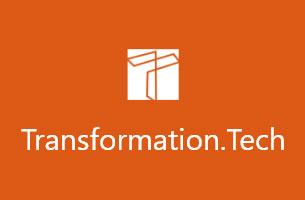Contracts are essential to any business. No business wants to end up stuck in a bad deal or, worse, end up in legal trouble because of insufficient contract oversight. Following the principles of contract lifecycle management (CLM) helps companies avoid those issues. Investing in contract lifecycle management software gives organizations a tool that tracks the progression of contracts. As a result, you can ensure the integrity of documents from the point of creation until it’s time for renewal or review for compliance purposes.
What is Contract Lifecycle Management Software?
The complete contract lifecycle involves a lot of different tasks. The process of writing a new contract can get very complex. Depending on your business needs, you may need only a single-page agreement or a massive document with many amendments and specifications. It’s challenging to keep up with the changes and proposals from everyone involved, including company officers and the legal team.
Once you’ve drafted a basic outline, next comes negotiations and approvals. There’s also the post-approval process involving contract administration and reporting. Your contracts clarify the value of transactions between your business and customers. In addition, a well-written contract is your biggest protection of risks involved in a deal and guides your entire business relationship.
Trying to do all this manually can seem almost impossible. One missing subclause can lead to a host of company issues later. That’s where you benefit from using contract lifecycle management software. With the right CLM solution, you can avoid an unnecessary legal fight and ensure your company collects what’s due for your services.
Why Should Companies Use a Contract Lifecycle Management Platform?
Contract lifecycle management software helps you maintain control over the entire contract process, including:
- Making sure the contract remains in compliance with industry standards
- Ensuring the contract gets updated properly
- Helping you administer the contract effectively
Creating and maintaining a contract manually quickly becomes tedious for everyone involved. Ensuring you capture every change or insert every required legal clause takes a lot of time and effort. Using contract management software simplifies the contract management process. That helps you serve customers better, ensures the document reflects any regulatory requirements, and clearly outlines all parties’ agreed terms.
CLM software gives you comprehensive control over your contracts. That lowers the risk of your company running into a legal landmine that threatens your organization. Here’s what you could potentially lose by not using a contract lifecycle management platform:
- Poor contract enforcement — You could end up not getting the products or services requested in your contract. For example, the time salespeople spent negotiating a great price for an essential product needed for a manufacturing firm could go down the drain.
- Inability to stick to deadlines — Failing to properly monitor the terms of your contract can leave you delivering services to customers late or miss a deadline for a client. In addition, those contract violations could cost you future business or have you dealing with a lawsuit.
- Loss of production time — Poor contract organization could cause your company to spend time on things like trying to locate essential clauses in a document or searching for the contract itself. CLM software helps you organize your contracts and quickly locate important sections.
- Lack of efficiency — Not having the ability to stay on top of your contracts means you’ll have difficulty optimizing your business processes. Because of that, you won’t get to be responsive to changes or find ways to increase your revenues while lowering costs.
How Does Contract Lifecycle Management Software Work?
Many top contract lifecycle management software platforms rely on AI and machine learning to track the progression of contracts. They give companies the ability to automate and streamline different phases of the contract development process. As a result, you have a centralized hub for tracking negotiations, compliance issues, and proposed terms for a contract renewal.
Additional ways that a CLM platform benefits your company include:
- Making suggestions that ensure your contract complies with industry standards
- Organizes the contract in a way that makes sense to all parties
- Enforces proper separation of roles within the contract management process
- Helps establish timelines for different phases of the contract lifecycle
- Establishes audit trains for approvals and changes
- Allows companies to establish a standardized contract development and tracking process
What Are Some Common Features, Functions, and Capabilities of Contract Lifecycle Management Platforms?
The collaborative nature of a contract lifecycle management solution makes it easier for different stakeholders to keep up with complex negotiations and amendments. In addition, most CLM platforms let you track different versions of your contract. Having the ability to see records of different edits helps you get a 360-degree view of everything involved in the evolution of the contract.
Other features you should look for when considering different contract lifecycle management platforms include:
- Templates for authorizing different types of contract
- Ability to set up the software in the cloud or on-premises
- Security settings that control who can make changes to a contract
- Ability to send documents out to collect electronic signatures
- Integration with other essential software and data resources
- Reporting features
- Dashboards for real-time tracking
- Ability to create reminders about deadlines
- Ability to create approval workflows






















